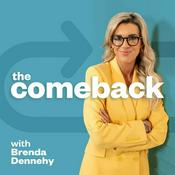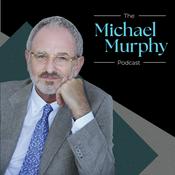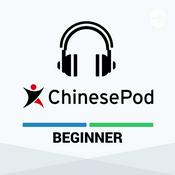34 episodes
- We've been told time and time again that we need to understand data in context: it's an ethical imperative. Not every language gets an LLM; not every population fully understands a technology that's deployed in their community with or without everyone's consent; and certainly we're told that we will make better, safer conclusions with our data if we understand the context. John DeNero looks at things differently: instead of an ethical imperative for understanding data in context, John talks about a structural one. For example, accurately translating language necessitates understanding the context. It's almost as if he read a bunch of French critical theory, thought about deconstruction, and realized that a structural imperative has an ethical valence as well—and vice versa. It's not a paradox, it's deconstruction.
This interview covers John's work as a professor of data science and computer science, his experience as a senior research scientist at Google Translate, thoughts on AI and language, and keeping up with the slang of today's youth.
John DeNero is the Faculty Director of Data Science Undergraduate Studies (DSUS) and Associate Teaching Professor in the UC Berkeley EECS department. He is the co-founder and Chief Scientist at lilt.
John's website
Google Scholar
A Class-Based Agreement Model for Generating Accurately Inflected Translations
This episode is dedicated to MukhammadAziz Umurzokov and Ella Cook, the two Brown University students who passed away on December 13th, 2025. - In language-centric fields we privilege the speaker. Linguistics looks at spoken or signed utterances; linguistic anthropology does as well. But Michael Berman looks at listening, which for him is a process wherein you limit or shift your language practices so as to avoid being generated as a certain type of person (often within a hierarchical relationship). That’s listening. It's about avoiding (or not) taxonomy, stereotypes, perception, and it necessitates an understanding of the power that our ears have. This episode cannot be reduced to a few thematic elements: Michael and I discuss listening, semiotics, C.S. Peirce, suffering and compassion, critiques of linguistics and other sciences, the implicit economic models undergirding scholarship, and his fieldwork in Japan—among other things. I’m struck by how much ground we cover, and yet we make a limited number of rhetorical and analytic moves. Whether we’re talking about what constitutes listening, language ideology, religion, etc.—we’re always taking the minuscule and making it representative (or symptomatic) of something bigger. Maybe that’s a paranoid reading, but I think it’s useful in the context of our conversation. What appears as an individual assessment of language is in fact a societally-engineered and collectively-upheld assessment. What appears as a certain niche orientation to data turns out to be symptomatic of widespread abuses of scientific frameworks. And, as Michael will remind us, the creation of categories and production of knowledge has effects. So let’s pay attention.
This episode took inspiration from the questions that Jonathan Rosa asked in his episode on Tomayto Tomahto a year ago. Before listening to Michael, I encourage listening to Jonathan’s episode if you haven’t already.
Michael Berman
C.S. Peirce
Jonathan Rosa’s episode
Toward a linguistic anthropological approach to listening: An ear with power and the policing of “active listening” volunteers in Japan
Religion overcoming religions: Suffering, secularism, and the training of interfaith chaplains in Japan
Forms of the Affects
“Why The Problem Isn’t Single-Parent Families”
Why Is There So Much Fraud in Academia?
This episode was written, edited, and produced by Talia Sherman. All artwork by Maja Mishevska. - We’re in a paradoxical time for dictionaries, claims Stefan Fatsis. On the one hand, we’re bombarded by words and ways to understand them in this lexically intense, linguistically charged political and cultural moment. On the other hand, the dictionary is struggling. Merriam-Webster—fighting to keep up with AI, machine learning software, and the explosion of voices vying for authority over what words mean—must evolve or compromise on the care put into defining words. But Merriam-Webster isn’t unique, and neither is language, for that matter, in its position within a (political) economy. Competition is healthy.
Throughout NYT-bestselling author Stefan Fatsis’ book, Unabridged: The Thrill of (and Threat to) the Modern Dictionary, readers learn about lexical histories, Merriam-Webster’s backstory, word-enthusiast subcultures, and the importance of a dictionary's measured, apolitical approach to language. As Stefan says, “the demand for life or death information—objective, solid, reality based information that a dictionary like Merriam Webster provides—is critical to the functioning of democracy in a civil society.” So there you have it: the thrill and threat to the modern dictionary. It’s a paradox, hopefully an escapable one.
Stefan Fatsis Website (https://www.bystefanfatsis.com/)
Unabridged - Grove Atlantic Site (https://groveatlantic.com/book/unabridged/)
Is This the End of the Dictionary? - Atlantic OpEd (https://www.theatlantic.com/magazine/archive/2025/10/dictionary-survival-language-evolution/683976/)
American Dialect Society Selects rawdog as 2024 Word of the Year (https://americandialect.org/wp-content/uploads/2025/01/2024-Word-of-the-Year-PRESS-RELEASE.pdf)
Encyclopedia Britannica and Merriam-Webster sue Perplexity AI for copyright and trademark infringement (https://www.theverge.com/news/777344/perplexity-lawsuit-encyclopedia-britannica-merriam-webster)
True Color by Kory Stamper (https://www.penguinrandomhouse.com/books/555914/true-color-by-kory-stamper/)
Here’s why “fuck” is in the dictionary (https://qz.com/973992/a-lexicographer-explains-why-dictionaries-contain-words-like-fuck)
Lindsay Rose Russell (https://english.illinois.edu/directory/profile/russellr)
Peter Sokolowski (https://aceseditors.org/peter-sokolowski)
Ben Zimmer’s episode on Tomayto Tomahto (https://open.spotify.com/episode/1VlBEyUPyhfzRmAoZe5lV2?si=3639e28fc3564c22)
Nicole Holliday’s episode on Tomayto Tomahto - “And that’s what ideologies are: the air that you’re breathing, something that feels like it’s common sense.” From start to finish, this episode is about ideologies: their consequences, their makeup, and the struggle to shake their influence.
Savithry Namboodiripad, an associate professor of Linguistics at UMichigan leverages her linguistics background to critique ideologies of the native speaker, monolingualism, multilingualism, and more. Her research often proceeds on two separate tracks: studying language (usually syntax or language contact), and studying the field of linguistics: where our received theoretical framings come from, and how to reach stronger conclusions based on multi-disciplinary evidence.
In this episode, we discuss how to dismantle pernicious ideologies through better experimental design and theoretical framing, and then we get to questions that are far greater than just the field of linguistics. For instance, why must we always get to the “pure” natural object? How have ideas about language always transcended academic discourse?
Throughout, we express a lot of frustration at the academic frameworks that neglect to unsettle eugenicist, misogynistic, or racist ideologies. But it’s important to remember that linguistics is not alone in its failure. Science needs variables, and society provides them. Frameworks make things make sense, so they stay. Linguistics is caught in limbo between formal failures and the impositions of our content: language.
Savithry Namboodiripad
The ROLE Collective
Contact, Cognition, & Change Lab
Rejecting nativeness to produce a more accurate and just Linguistics
Towards a Decolonial Syntax: Research, Teaching, Publishing | Decolonizing Linguistics
Why we need a gradient approach to word order Mother Tongues and Nations: The Invention of the Native Speaker
The Emergence of the English Native Speaker: A Chapter in Nineteenth-Century Linguistic Thought - The AI Con may as well be the answer to the question: what happens when a linguist and a sociologist come together to write a book? Co-written by Emily M. Bender and Alex Hanna, The AI Con isn’t just a book, it’s an instruction manual to guide readers through this era of AI hype. In short, this book does what academic scholarship does best: close read texts, historical patterns, marketing schemes, statistics, politics, and more—and find a way to connect these granular details and examples to broader trends in our society. The AI Con sits along this continuum between close reading and abstraction. It’s a book about “AI” technology, yes, but it’s also about the demands of an economy that values human labor and intelligence less and less. It’s a book about the ideals of democracy conflicting with economic pressures; the mutually determining relationship between worldviews and technology, or technology and institutional priorities; the power of technology if people have autonomy over it; and the problems with western epistemological orientations when they are imposed via technology onto populations and individuals who never consented for this technology to be imposed on them. This book is about a lot. But it’s also funny, and witty, and accessible, and written with the best intentions. Throughout this episode, Emily and Alex discuss their writing process, the pernicious economic undercurrents that paved the way for this AI hype era, contrasting epistemological orientations, how technology perpetuates societal biases, and much more.
The AI Con
Alex Hanna
Emily M. Bender
Sébastien Bubeck, et al, Sparks of Artificial General Intelligence: Early experiments with GPT-4
Ruha Benjamin, Race After Technology
Virginia Eubanks, Automating Inequality
The Less People Know About AI, the More They Like It
Ars technica: “Most Americans think AI won’t improve their lives, survey says”
Robin Wall Kimmerer, Braiding Sweetgrass
Tomayto Tomahto is produced, written, and edited by Talia Sherman. Artwork by Maja Mishevska.
More Education podcasts
Trending Education podcasts
About Tomayto Tomahto
I say tomayto, but you say tomahto. Why? What cognitive, economic, racial, or social factors led you to say tomahto and I tomayto? How did you acquire the ability to produce and perceive coherent sentences? These are some questions that linguists attempt to answer scientifically. Led by Talia Sherman, a Brown University undergrad, this podcast explores language: what it is, how it works (both cognitively and in practice), and its relationship to politics, history, law, pedagogy, AI, neuroscience, psychology, anthropology, critical theory, and more!
Podcast websiteListen to Tomayto Tomahto, IT IS WHAT IT IS! and many other podcasts from around the world with the radio.net app

Get the free radio.net app
- Stations and podcasts to bookmark
- Stream via Wi-Fi or Bluetooth
- Supports Carplay & Android Auto
- Many other app features
Get the free radio.net app
- Stations and podcasts to bookmark
- Stream via Wi-Fi or Bluetooth
- Supports Carplay & Android Auto
- Many other app features


Tomayto Tomahto
Scan code,
download the app,
start listening.
download the app,
start listening.




































